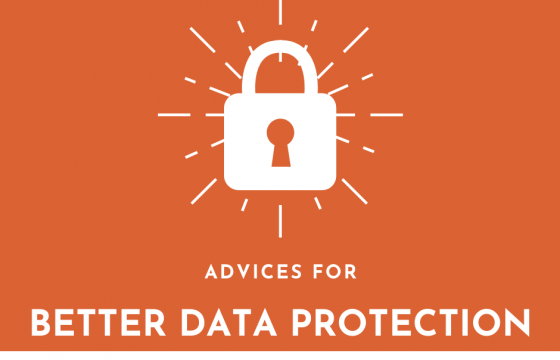
ABAKUS IT SOLUTIONS advices for a better protection of your personal data
Posted 3 Years ago
You were convinced by our previous article that you should start to implement actions to increase the security of your information. Here are some simple tips to get started.
Create strong and unique passwords
To make it easier, we tend to reuse the same password over and over, but it is definitely not recommended! Define strong and unique passwords for every online accounts you own. A lot of options exist to memorize and save them all in one place. You could opt for a electronic vault like LastPass or even use the new options that many classic web browser developed. They even suggest you strong password directly when you need to create a new one now.
Use two-factor authentication
More & more social media and mailing solutions are now asking their users to use two-factor authentication. You might have encountered it when you were trying to access one of your accounts on another device that you are not using on a regular basis. If you have never witnessed it, we strongly recommend that you investigate the settings of your accounts to turn on that feature. This way you will be notified and ready to quickly modify your password in case someone attempt to access to your personal account. You are also already using this kind of authentication with your banking application.
Do not overshare on social media
The pandemic increased the need for online contacts. With more and more person joining social media, you can quickly assume that the new users do not really know how it works. They generally ignore that they can limit the access to personal information they share on social media. Simply by exploring the privacy settings you can personalise it. This way you will get to decide with which category of person or even single individual you will share a particular content with.
Be careful with free Wi-Fi
When travelling or simply shopping, we tend to look for free Wi-Fi hotspots to save a bit of data. However, those Wi-Fi are open gateways for hackers. Watch carefully every single requirements you might be asked to be granted the connexion. In case you absolutely need a specific document and therefore have to access to an unprotected network, make sure that every page you visit on the web is secured. You can easily spot it in the URL. If the address begins with HTTPS, you should be fine. Always avoid automatic connection to a free Wi-Fi.
Be careful where you click
You should avoid suspicious online links and learn how to recognise them, same for attachments. Hackers have been practicing phishing techniques for a while now. It has become one of the most efficient way to gain access easily to your information because you are just giving them everything they want just by not paying attention to little details. You should check the identity of the people sending you mail, watch out for weird domain names and websites who looks like the one you want visit but with minor twists that could be an indication that is a scam.
Keep your computer updated
An easy way to secure your devices is to simply keeping them up to date. To avoid losing time when we turn on our devices, we often press too quickly the delay button for updates. However, they can contain major security updates that can help keep you away from trouble. Make sure that you authorise automatic updates for all your software’s.
Use quality antivirus software
It is common sense to have installed antivirus software but they are not necessarily provided with the computer you might acquire. Check our website and get in touch with our representative to obtain a personalised recommendation on the best IT products. We provide a wide range of quality products including this kind of software.
Secure your internet connection with VPN (virtual private network)
If the employee’s of an organisation are working remotely, managers should consider acquiring a VPN which could enable their subordinates to send and receive data as if their computer were directly connected to your office network while they are actually using their network at home or even a public network which might be dangerous as we presented above.

